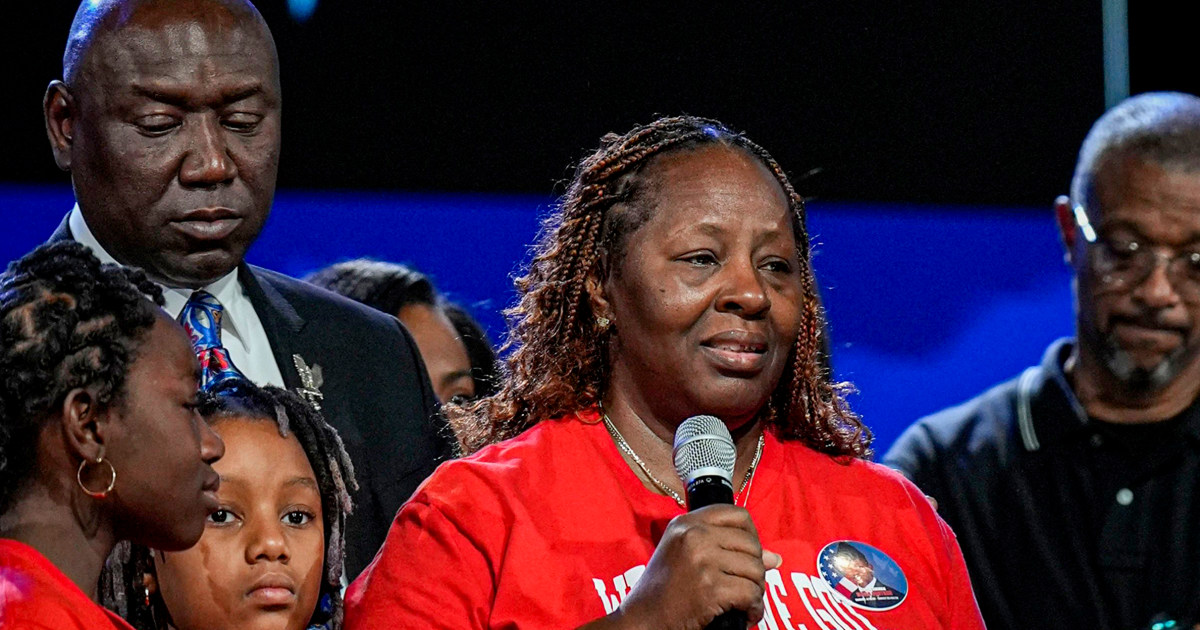News
US property investor Sam Zell dies aged 81

Sam Zell, a legendary distressed property investor who later took a tumultuous turn in the media industry, has died.
Zell, 81, became known as the “Grave Dancer” for his habit of feasting on other developers’ ills, particularly during the early 1990s property market crash.
He built his flagship company, Equity Office Properties Trust, into the nation’s largest office landlord — with trophy buildings from coast to coast. Then, with peerless timing, he sold it to private equity firm Blackstone for $39bn in 2007. It was at the time the biggest-ever leveraged buyout and came just ahead of the global financial crisis.
Zell later tried his hand at media, outbidding two other billionaires in 2007 for the Tribune Company in his native Chicago, publisher of newspapers including the Chicago Tribune and owner of broadcast television networks and the Chicago Cubs baseball team.
At first, Zell was welcomed as a potential saviour for a company swept up in the newspaper industry’s accelerating decline. But Tribune ended up filing for bankruptcy the next year, loaded down with $13bn in debt. Zell faced recriminations from journalists and lawsuits from investors. He later called it “the deal from hell”.
The child of Jewish immigrants from Poland who fled the Holocaust, Zell was born in Chicago in 1941. His father was a jewellery salesman. The young Zell showed an entrepreneurial streak at an early age, buying Playboy magazines downtown and then selling them at a mark-up to his school friends in the suburbs.
Zell entered real estate while still a law student at the University of Michigan by managing rental properties alongside his studies. He became so successful at it that he ditched a legal career to become a full time developer.
Retired attorney Jack Guthman, who represented Zell and his company on zoning transactions, was introduced to the young developer in the 1970s by Newton Minow, the renowned former head of the Federal Communications Commission. Minow noted Zell was “an up-and-comer in the real estate world,” Guthman recalled.
“Turns out he became a giant,” Guthman said. “I think of him as a person with great imagination. He put together deals that other people couldn’t conceive of.”
He gained fame as one of America’s great contrarian investors, making a habit of scooping up properties in distress — from mobile homes to office buildings and industrial assets — and breathing new life into them.
Along with his friend and business partner, the late Robert Lurie, Zell rode the property market boom of the 1980s but then predicted doom — and was proved right.
Today, as investors confront another commercial property market crash after a prolonged boom, they routinely hearken back to Zell and his insights from 30 years ago.
Zell enjoyed a reputation as an iconoclast. He dressed down and preferred an annual motorcycle trip with friends to membership in Chicago’s establishment clubs.
He showed characteristic bravado upon buying Tribune, telling employees and investors: “Everything I do is motivated by doing it best, doing it different, answering the questions no one else could.”
But he ended up bedevilled by the same forces afflicting other newspaper owners, including the collapse of print advertising. The irreverence and aggressive business culture brought by Zell and his managers wore thin as the company weakened and prized assets, such as the Cubs and the Los Angeles Times, were sold off. Zell later blamed the 2008 financial crisis and the seizing up of the credit markets for the deal’s woes.
Still, he and his wife, Helen Zell, were mainstays among Chicago philanthropists. They supported the Museum of Contemporary Art Chicago and Invest for Kids, which assists non-profit organisations serving disadvantaged children.
“Being committed to Chicago is a trait that is valued, and he was highly valued,” Guthman said.

News
Read the Texas Governor’s Pardon

PROCLAMATION
BY THE
Governor of the State of Texas
PROCLAMATION No. 2024-0001
DPS #07666731
TO ALL TO WHOM THESE PRESENTS SHALL COME:
WHEREAS, Daniel Scott Perry, TDCJ #02450686, D.O.B. April 24, 1987, was
sentenced in the 147th District Court in Travis County on May 10, 2023, to twenty-
five years in prison for the offense of Murder, Cause No. D-1-DC-21-900007; and
WHEREAS, the Texas Board of Pardons and Paroles has conducted an exhaustive
review of Daniel Scott Perry’s personal history and the facts surrounding his shooting
of Garrett Foster; and
WHEREAS, both the Second Amendment to the United States Constitution and
Article I, Section 23, of the Texas Constitution protect the right to keep and bear arms
for, among other things, self-defense; and
WHEREAS, Texas law, consistent with those constitutional guarantees, provides one of
the clearest self-defense protections in the United States; and
WHEREAS, Texas Penal Code § 9.32(a) provides that a person “is justified in using
deadly force against another” when that person “reasonably believes the deadly force
is immediately necessary” to protect a person against another’s use of unlawful deadly
force; and
WHEREAS, Texas Penal Code § 9.32(c) provides that a person who is otherwise
lawfully present at the location where deadly force is used “is not required to retreat
before using deadly force”; and
WHEREAS, on July 25, 2020, Daniel Scott Perry, while driving on a public road in
Austin, slowed his vehicle as he rounded a corner onto Congress Avenue and
encountered a group of protestors obstructing traffic; and
WHEREAS, Daniel Scott Perry’s car was immediately surrounded by aggressive
protestors who rushed to obstruct, strike, pound, smash, and kick his vehicle; and
WHEREAS, Garrett Foster then approached within 18 inches of Daniel Scott Perry’s
car, confronted him, and brandished a Kalashnikov-style rifle in the low-ready firing
position; and
WHEREAS, Daniel Scott Perry fired his handgun at Garrett Foster to eliminate a
perceived threat to his safety and called law enforcement less than one minute later to
inform them of the incident; and
WHEREAS, Daniel Scott Perry explained to law enforcement at the time that he used
his weapon because he feared losing his life and has since consistently stated that he
acted in self-defense; and
WHEREAS, Travis County District Attorney José Garza, rather than upholding the self-
defense rights of citizens, has prioritized “reducing access to guns” that citizens may
use to lawfully defend themselves; and
FILED IN THE OFFICE OF THE
SECRETARY OF STATE
1:25 PM O’CLOCK
MAY 16 2024
News
Live news: US stocks close lower to end multi-day rally

US stocks retreated from a record high, ending a multi-day rally that had been spurred along this week by signs of easing inflation.
A late-session dip resulted in the benchmark S&P 500 closing 0.2 per cent lower on Thursday. Wall Street’s benchmark had been as much as 0.3 per cent higher in early trading to set a record intraday high.
Consumer staples was the S&P 500’s best-performing sector, as Walmart shares leapt 7 per cent to a record high, while basic materials was the index’s worst-performing group.
The tech-heavy Nasdaq Composite fell 0.3 per cent, ending a three-session winning streak. The small-cap focused Russell 2000 declined 0.6 per cent.
Traders sold Treasuries, pushing the yield on the two-year note up 0.06 percentage points to 4.80 per cent. The yield on the 10-year note rose 0.02 percentage points to 4.38 per cent.
News
Lawyer for family of slain airman says Florida deputy call shows he went to wrong apartment

A lawyer for the family of Roger Fortson insisted Thursday that the body camera video from the Florida sheriff’s deputy who killed the Black Air Force senior airman and police radio audio support their assertion that the deputy went to the wrong apartment while responding to a domestic disturbance call that day.
At a news conference, civil rights attorney Benjamin Crump played audio from a police radio in which a dispatcher says that a “fourth party” gave them information about the location of the disturbance.
“Uh, don’t have, uh, any further other than a male and female,” the dispatcher tells officers. “It’s all fourth-party information from the front desk at the leasing office.”
The news conference was held at the New Birth Missionary Baptist Church in Stonecrest, Georgia, and was attended by Fortson’s parents, siblings and other family.
Crump said the radio audio had been condensed to remove communications that were not relevant to the incident at the apartment complex where Fortson was shot six times. NBC News has not listened to an unedited version of the audio.
The Okaloosa County Sheriff’s Office and the Florida Department of Law Enforcement, which is handling the criminal investigation into the shooting, did not immediately return requests for comment about the family’s assertion that the deputy went to the wrong door. The sheriff’s office has not released an incident report or any 911 records. Sheriff Eric Aden has previously said the deputy had not entered the wrong apartment.
Fortson, 23, was shot May 3 in the doorway of his apartment in Fort Walton Beach by a deputy from the sheriff’s office who was responding to an apparent domestic dispute. Fortson’s family and their attorneys have insisted the deputy went to the wrong apartment because Fortson was home alone and on a FaceTime call with his girlfriend at the time of the incident. Crump said Thursday that the two were not raising their voices and had been making plans to see each other that weekend. Crump and Fortson’s family contend his killing was unjustified.
Crump showed two clips from the body camera video of the deputy being led around the apartment complex by a woman. At one point, the deputy asks her, “Which door?” She tells him, “I’m not sure.” The woman also tells the deputy that she heard a disturbance that included a slap two weeks ago and says, “I wasn’t sure where it came from.”
The woman later tells the deputy that he should go to apartment 1401, footage shows. It is unclear who the woman is, but Crump said Thursday that he believes she works in the leasing office of the complex.
When the deputy arrives at the apartment, he first knocks without identifying himself. He then knocks two more times, identifies himself as a member of the sheriff’s office and steps away from the door.
The video shows Fortson answer the door of his apartment with a gun in his right hand that is pointed downward and being shot by the deputy within seconds. After shooting, the deputy shouted for Fortson to drop the gun. Fortson legally owned the firearm, Crump said.
Crump said multiple times Thursday that he believed the deputy had “used excessive force” and had “executed” Fortson.
“As his mother said, they cannot stain his reputation,” Crump said. “But she feels, as long as they continue to say that they went to the right apartment, they’re staining his reputation. Because Roger did not have any domestic disturbance. Roger had no criminal history.”
-

 Politics1 week ago
Politics1 week agoBiden takes role as bystander on border and campus protests, surrenders the bully pulpit
-

 Politics1 week ago
Politics1 week ago'You need to stop': Gov. Noem lashes out during heated interview over book anecdote about killing dog
-

 Politics1 week ago
Politics1 week agoRFK Jr said a worm ate part of his brain and died in his head
-

 News1 week ago
News1 week agoMan, 75, confesses to killing wife in hospital because he couldn’t afford her care, court documents say
-

 World1 week ago
World1 week agoPentagon chief confirms US pause on weapons shipment to Israel
-

 Politics1 week ago
Politics1 week agoHere's what GOP rebels want from Johnson amid threats to oust him from speakership
-

 World1 week ago
World1 week agoPro-Palestine protests: How some universities reached deals with students
-

 World1 week ago
World1 week agoConvicted MEP's expense claims must be published: EU court













